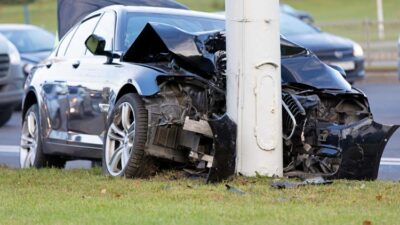If you’re on the road for any period of time, either as a driver or as a passenger, there’s a chance you could be involved in a car accident. No matter how safely you drive or how much you trust the person driving, there are some situations that lead to accidents almost unpreventably; an intoxicated driver on the road, inclement weather, and natural disasters could all result in an accident in which you are injured.
In the wake of the accident, and in the months following it, how you respond to your injuries could have a massive role in how you recover—as well as how you’re compensated. So what steps should you take if you’re hurt in a car accident?
Table of Contents
Get to Safety
Your immediate priority is getting to safety. If you’re conscious and able to move, you need to get yourself to a safe location as soon as possible. Depending on whether you’re the driver or passenger, and the extent of the accident, you may be able to drive the car to the side of the road, or let yourself out and walk to the side of the road. In any case, you should try to assess your current level of danger and minimize it. This will reduce your chances of receiving subsequent injuries (and/or getting killed), and limit the danger for other people on the road as well.
Assess Your Injury (and Call an Ambulance)
You’ll likely understand your injuries partially in the process of getting to safety, but take a moment to observe the damage your body has sustained. Are you bleeding? If so, where? Are you sore or hurt in different areas? Are you able to walk around?
Your adrenaline is likely surging after the accident, reducing your ability to feel pain—so don’t trust pain as your only gauge for injury. If you feel even slightly sore, or if you know you felt a major impact in the accident, it’s best to call an ambulance and be checked out by a medical examiner.
Ultimately, the person responsible for the accident should be responsible for any and all medical expenses you face in the wake of the accident; if you were responsible, your insurance will cover them.
Gather Information
There’s a chance you’ll need to take legal action, or fight with insurance companies, in the near future, so it’s in your best interest to gather as much information as possible. Depending on the resources available to you, that could mean stopping to interview eyewitnesses, taking photos and videos of the scene, jotting down personal information of the drivers involved, or even gathering footage from dashcams and surveillance cameras.
It’s also important to ensure a police report on the accident is filed, which will serve as an official record of events. Make sure to review the details in the police report carefully before signing off.
Talk to a Lawyer
Over the next several weeks, you may receive an offer from an insurance company, as compensation for your injuries, property damage, and other costs you may have suffered. But before you take this, it’s important to call a car accident lawyer near you. A car accident lawyer may be able to negotiate with the insurance company to get you more compensation, and in extreme cases, they may be able to help you pursue legal action for more compensation. Most car accident lawyers will be willing to review the basics of your case for free, so there’s no risk or harm in reaching out. Be sure to bring any and all details you have on the situation, including evidence gathered in the wake of the car accident, your medical bills, and your other expenses.
Continue Getting Medical Treatment
Even if you’re not sure what kind of compensation you’re going to receive, or if you’re still in talks with lawyers and insurance companies, it’s important to get the medical treatment you need—and follow the advice of your doctors. Keep receipts and records of all your visits, and be sure to take care of yourself. You’ll need to prove that you got medical attention responsibly and that you’re genuinely trying to get better. Keep in mind that there are many types of medical expenses, including hospital bills, costs of prescription medications, and expenses for physical therapy.
If you’re able to escape a car accident unscathed, consider yourself fortunate; not only do you get to leave the scene of the accident injury-free, but you also get to avoid the complexities of managing injury compensation in the weeks and months that follow. If you are injured, talk to an expert as soon as possible so they can help you decide what to do next.













Comments